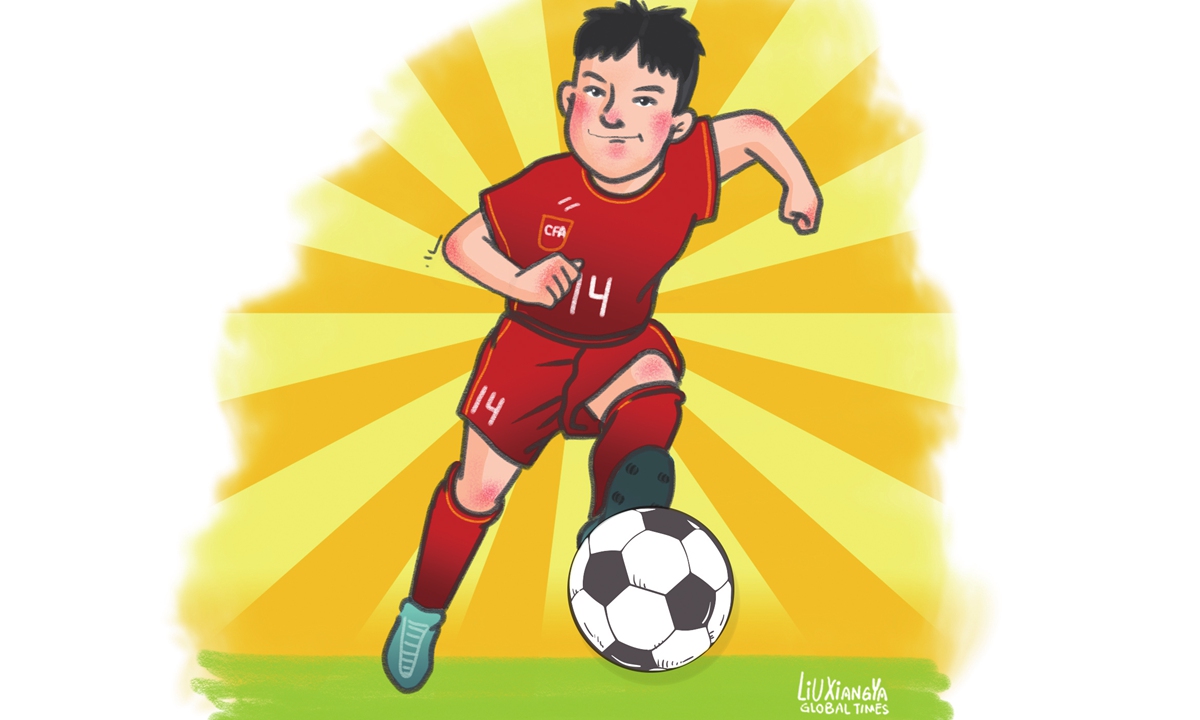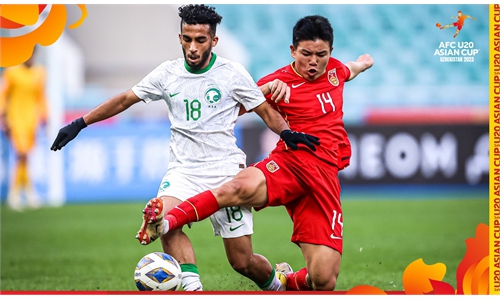ARTS / CULTURE & LEISURE
A calm market, rational spending better for Chinese soccer’s progress

Illustration: Liu Xiangya/Global Times
Radical changes are in store for Chinese soccer as Director of the General Administration of Sports Gao Zhidan vowed on Sunday "to cure sickness with powerful medicine."
The statement comes amid an anti-graft campaign in the sport that has toppled several high-ranking soccer officials, including Chinese Football Association (CFA) President Chen Xuyuan, Secretary-General of the CFA Liu Yi and former national team head coach Li Tie.
It remains unknown how far-reaching their "serious disciplinary and law violations" have been, as the investigations have not concluded yet, but many believe they are linked to previous rocketing spending in domestic soccer.
The past decade has witnessed many high-cost transfers.
The transfer records of the Chinese Super League (CSL), the domestic soccer top flight, are dominated by foreign players, according to German soccer transfer tracking site Transfermarkt.
Shanghai Port, formerly known as Shanghai SIPG, led the spending list as it signed two Brazilian internationals: Oscar from the English Premier League's Chelsea in 2017 with 60 million euros ($63.86 million) and Hulk from Zenit Saint Petersburg in 2016 with 55.8 million euros.
The transfer record for a domestic Chinese player was held by forward Zhang Chengdong after his transfer from Beijing Guoan to Hebei China Fortune, now Hebei FC, in 2017, with a transfer fee of 20.4 million euros. In mid-February, the China Fortune Land Development Co announced that its co-president Meng Jing, who is the former president of the aforementioned CSL club Hebei China Fortune, had been detained.
Another high roller in Chinese soccer is Shu Yuhui, who was found guilty for organizing and leading a pyramid scheme and sentenced to nine years behind bars in 2020. He was also accused by the fans of using soccer to "sportswash" his wrongdoings. Shu, a former member of Chinese People's Political Consultative Conference National Committee, was the chairman of the company that owned the now-defunct CSL club Tianjin Quanjian. The club's squad used to boast names including Alexander Pato of Brazil and Axel Witsel of Belgium - both on the CSL transfer records list.
The high spending on club level soccer did bring success, as it is the case for Guangzhou FC, who used to be known as Guangzhou Evergrande and won the Asian Champions League twice in 2013 and 2015.
The club had a history of using astronomical figures to boost players' motivation for games. However, it had some side effects. When the Evergrande players were representing China on the national team, they were occasionally criticized for not doing their best. Many people chalked their poor performance up to the lower bonuses they were getting while being on the national team.
Once playing overseas was considered a glorious moment for a Chinese soccer player. But the past decade saw only a limited number of Chinese players go overseas.
After he later took the reins of Chinese national team, renowned soccer coach Marcello Lippi of Italy, who led the Evergrande club to win the 2013 Asian championship, pointed out that Chinese players lacked confidence when playing internationally.
There was a reason for this lack of confidence.
At the club level, it was mostly foreign players who carried the burden of decisive moments such as shooting and playmaking, meaning domestic players lacked experience when they later had to shoulder the responsibility while representing China.
The national under-23 team, which did not qualify for the most recent 2022 Asian under-23 tournament, lost 11 of its 12 matches in the regional championship in four group-stage-exit tournaments.
The national under-20 team has not qualified for the FIFA Youth World Cup once since 2005. Sunday saw their elimination in the U20 Asian Cup quarterfinals, meaning the team's other record of not qualifying beyond the quarters in Asia since 2004 will also continue.
But being in the quarters shown there is hope for improvement, as long as there is a stable and healthy environment for them to progress.


